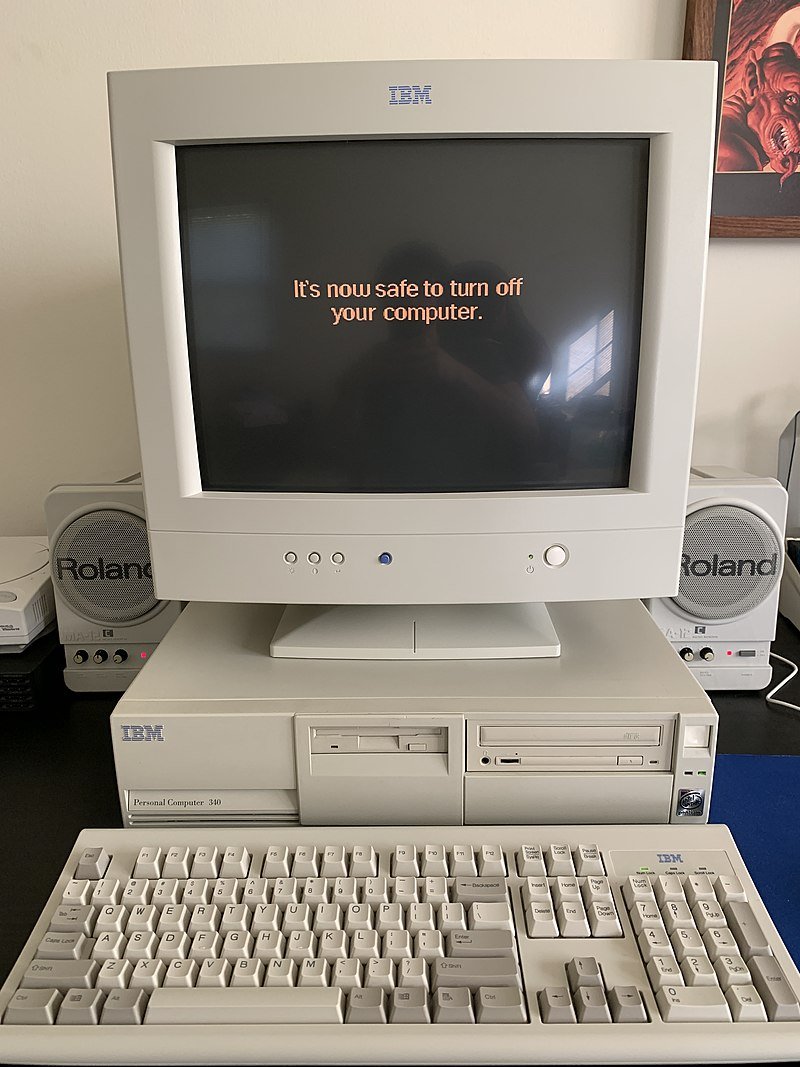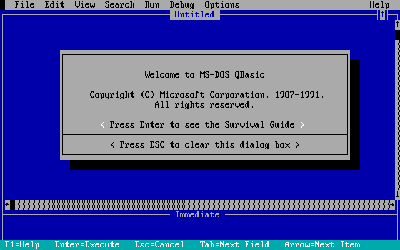As a big nerd, I grew up loving video games, but for most of my childhood, I didn’t have the slightest idea how they were made. I sort of imagined a guy in a labcoat using tools on a circuitboard in a factory to make Mario. I had to content my creative urges with filling reams of notebook paper with RPG monster designs only marginally ripped off from whichever Dragon Warrior I had played recently, or leading the neighborhood kids in a game of “Golden Key” in which each yard on the street was assigned a suspiciously-Zelda-like name and terrain type (“Margaret’s house is the Forest of Misery!”). (I enjoyed this kind of thing so much, by the way, it didn’t even bother me that it involved exercise and sunlight!)
But then one day in 5th grade, an older neighborhood kid came over to brag about something he had learned in school - HOW TO MAKE HIS OWN VIDEO GAMES. My jaw immediately hit the floor (or at least it tried — I’m sure it more likely bounced off my stomach back up to my face).
I was seething in jealousy. He went to a different school system, so I would likely never have that same computer class. I demanded he show me what he knew - he said I already had everything I needed on my dad’s computer. I didn’t believe him, but he took me to the machine, went out to the C:\ prompt, typed in QBASIC, and pushed Enter.
That’s when my entire life changed.
He showed me the gloriousness of programming - line numbers, GOTO statements, PRINT “Hello world!”, and so forth. I soaked it all up. THE POSSIBILITIES WERE ENDLESS! (PROVIDED YOU DIDN’T CARE ABOUT GRAPHICS SO MUCH!)
I immediately had my dad drive me out to Books-a-Million (remember those?), where I huffed over to the Productivity section to find a book that would help me be distinctly unproductive. I somehow managed to find a copy of “QBasic Programming for Dummies” - a tattered copy that still sits on my office bookshelf, by the way. It was amazing. Funny, full of anecdotes, and easy for a kid to follow along with. All I had to do was replace “balance your checkbook” with “do 10 points of damage to a goblin” and I was off to the races. (Also it proved that my friend’s line numbers were totally passé! Eat that, older kid!)
I pretty much immediately started cranking out embarrassing text-adventure copies of all my favorite video games - most of which were Final Fantasy II. Eventually I branched out into embarrassing text-adventure copies of 7th Guest, Freddy Pharkas: Frontier Pharmacist, Bullfrog’s Theme Park, Chrono Trigger, and…uh… Final Fantasy III. I taught myself STRUCT statements, FUNCTION calls, writing to disk, playing little beep tunes, random number seeding, and how to do everything wrong.
I learned the hard way about something called a “stack overflow.” By calling subroutines on top of subroutines on top of subroutines the game would crash horribly after several hours of my little brother testing “Crystal Adventure” or whatever. But eventually I figured out how to avoid “stack overflow,” so then I could run into “out of string space.” I sometimes got the impression QBasic always resented being used for goofy text adventures and not balancing my checkbook.
There was one game I was kind of proud of, though. I probably made it in 6th or 7th grade. I was experimenting with ASCII graphics and made a simulation game that was sort of a combination of Colonization and Castle Risk, with a result that played an awful lot like a goofier, more primitive Romance of the Three Kingdoms. I called it “EUROCON” because that sounded cool to me. I even compiled an executable!
And believe it or not, you can play it right now! All you need is DOSBOX. Run it from a DOS prompt and it seems to work fine on a modern computer, shockingly enough!
Click HERE to download!
The game is totally self-explanatory and requires no introduction…
…
…
Ok, fine, it’s an obtuse mess of ASCII characters. But if you’re into retro homebrew projects by 1990’s middle schoolers, you might find this at least academically interesting. You start off with one European territory, and your goal is to conquer your rival, wherever he winds up on the map. You grow food, mine ore, convert ore to arms, arm soldiers, and fight wars. Oh - and you also launch crusades for holy relics that offer permanent in-game bonuses (just like in real life)! It’s fun for the whole family - a whole family of nerds!
So I hope you enjoy EUROCON, brought to you by the incredible creative empowerment of an ancient Microsoft product.
You’re welcome.



